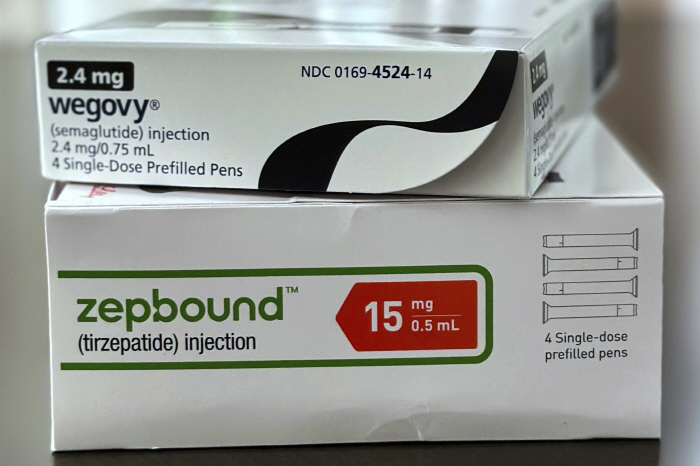Gastric and Jebbound ingredients, reducing dementia risk and mortality...Nerve/cerebrovascular protection potential
|
In a study published in the Journal of the American Medical Association, JAMA Network Open, a team led by Professor James Audience Wei of Zhongshan Medical University in Taichung City, Taiwan, found this result in a study on the effects of GLP-1R agonists and other treatments on dementia and mortality in 60,000 patients with diabetes and obesity in the United States.
The research team analyzed data from 68,860 patients with type 2 diabetes and obesity registered in the U.S. Electronic Medical Record Network (TriNetX US Network) for seven years (December 1, 2017 to June 30, 2024). 30,430 people (average age of 57.9) were given semaglutide and tirzepad, and the remaining 30,430 people (average age of 58.0 years) were given other treatments (biguanaide, sulfone urea, etc.), and the follow-up data included dementia, Parkinson's disease, ischemic stroke, intracerebral hemorrhage, and overall mortality.
As a result of the analysis, the risk of dementia was 37% lower in the semaglutide and tirzepatide group than in other treatment groups, and the risk of stroke was 19%. In addition, all-cause mortality was analyzed to be 30% lower in the GLP-1R agonist group than in the other treatment group. Although semaglutide and tirzepatide had greater effects on reducing dementia, stroke, and mortality in patients over 60 years of age, women, and body mass index (BMI) 30 to 40, no significant association was found between Parkinson's disease and the risk of intracerebral hemorrhage.
The research team said that second-generation GLP-1R agents such as semaglutide and tirzepatide are associated with reduced risk of dementia and stroke and overall mortality in patients with both type 2 diabetes and obesity, adding that GLP-1R agents have the potential to protect nerves and lower the risk of cerebrovascular disease beyond blood sugar control.
Meanwhile, according to a large cohort analysis by a Swedish research team published in the medical journal 『Lancet" last year, those over the age of 65 who took GLP-1-based drugs had a 23 to 30% lower risk of developing dementia than other drugs (DPP-4 inhibitors, sulfonylurea, etc.).
A study by a research team at Case Western Reserve University in the United States published last month in the international journal 『The Journal of Alzheimer's Disease" also confirmed that gastric obesity can reduce the incidence of dementia in patients with type 2 diabetes. The research team analyzed the electronic medical records (EMR) of 1.7 million patients with type 2 diabetes and found that patients who were prescribed Hugo Bee had a significantly lower risk of developing dementia than those who were prescribed seven other diabetes drugs. Previous animal experimental studies have also confirmed that gastric obesity plays a role in removing toxic substances such as tau protein, which causes Alzheimer's disease.
However, experts say that more clinical evidence and long-term research must be accumulated in order to be fully established as a standard method for diagnosing and treating dementia.
This article was translated by Naver AI translator.




